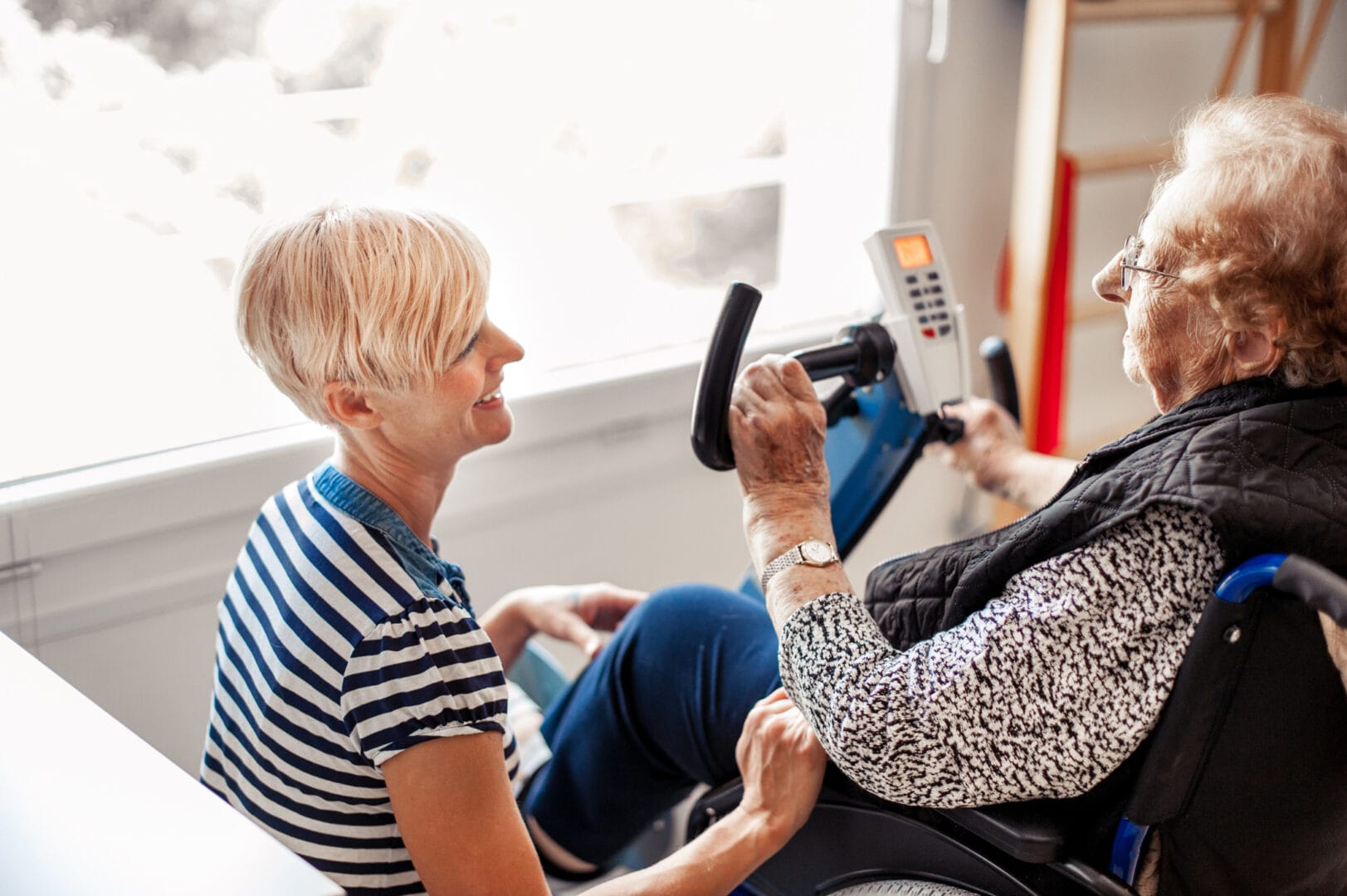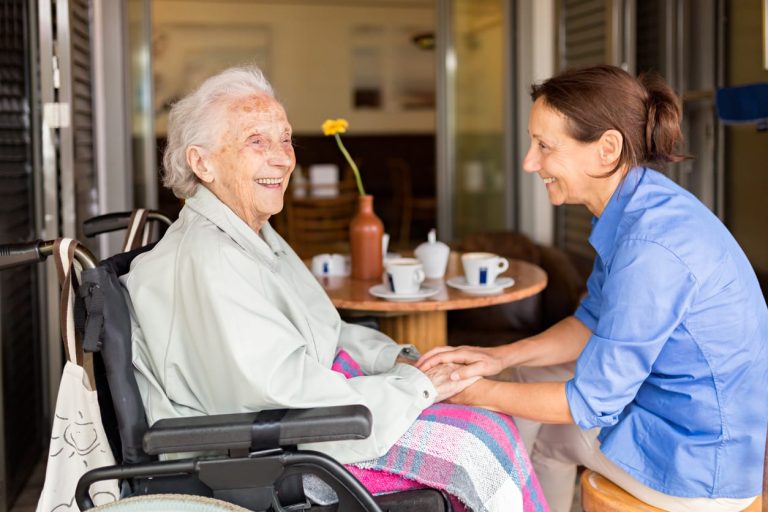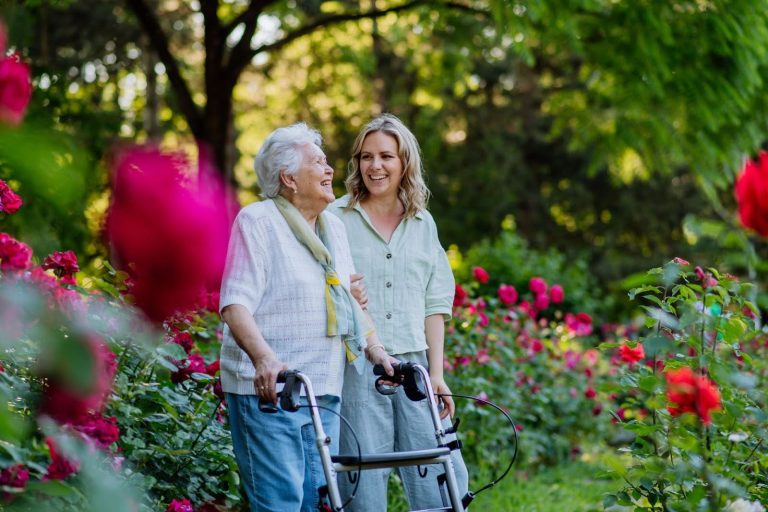The International Day of Persons with Disabilities (IDPD) is a global initiative that highlights the importance of inclusivity and advocates for the rights of individuals with disabilities. Celebrated annually on December 3rd, this day serves as a platform to raise awareness about the challenges faced by persons with disabilities and promote a more inclusive society. In this blog post, we delve into the significance of embracing inclusivity, with a focus on seniors who navigate life with disabilities.
- Challenges Faced by Seniors with Disabilities
- Embracing Inclusivity: Advocating for Our Beloved Seniors
- Family Caregiving Tips for Seniors with Disabilities: Nurturing a Holistic Approach
- Conclusion: Fostering Inclusivity for Seniors with Disabilities
Challenges Faced by Seniors with Disabilities
Seniors grappling with disabilities encounter a distinctive blend of emotional and physical challenges as they age, and it's crucial to recognize and address these issues for our loved ones. By understanding their unique needs, we can create environments that genuinely support their well-being. Here are key challenges faced by seniors with disabilities:
Accessibility Hurdles:
- Limited mobility can make daily activities, such as navigating stairs or using public transportation, immensely challenging.
- Insufficient infrastructure, like lack of ramps or elevators, adds barriers to their independence and engagement with the community.
Health Concerns:
- Managing chronic health conditions becomes more complex with age, demanding comprehensive care and support.
- Access to specialized medical services may be limited, impacting their ability to address specific health needs effectively.
Social Isolation:
- Physical limitations can lead to reduced social interactions, contributing to feelings of isolation and loneliness.
- Limited access to transportation can restrict participation in social events, exacerbating the risk of social exclusion.
Emotional Well-being:
- Coping with the adjustments brought about by disabilities often takes a toll on mental health.
- Emotional support and understanding become crucial for maintaining a positive outlook and mental well-being.
Financial Strain:
- Disability-related expenses, including assistive devices and home modifications, can strain financial resources.
- Limited income opportunities for seniors with disabilities may lead to financial insecurity and increased stress.
Inadequate Support Systems:
- The lack of tailored support systems can exacerbate the challenges faced by seniors with disabilities.
- Comprehensive and accessible support services are essential to help them maintain a fulfilling and independent lifestyle.
Recognizing these challenges is the first step toward creating environments that cater to the unique needs of our loved ones with disabilities. By fostering understanding and implementing targeted solutions, we can enhance their quality of life, promoting a more inclusive and supportive society for the seniors we care about deeply.
Embracing Inclusivity: Advocating for Our Beloved Seniors
Advocacy is the bedrock of our mission to foster inclusivity, especially for the seniors we hold dear. Here's why becoming dedicated advocates for our elderly loved ones is essential:
- Preserving Dignity: Upholding the dignity of our seniors is at the heart of advocacy, championing their right to age with respect and honor.
- Tailoring Support Services: Advocacy contributes to crafting support services specifically designed to address the unique challenges and needs of seniors.
- Ensuring Quality Healthcare: Advocacy plays a pivotal role in guaranteeing seniors have access to healthcare that considers their individual health concerns and promotes overall well-being.
- Fighting Ageism: Advocates actively work to dispel age-related stereotypes and prejudices, fostering an environment where seniors are valued for their wisdom and experience.
- Promoting Social Inclusion: Through advocacy, we strive to eliminate social isolation among seniors, creating opportunities for meaningful connections, social engagement, and community involvement.
- Securing Safe Living Environments: Advocacy efforts contribute to establishing safe and accessible living environments for seniors, promoting independent and comfortable living.
- Navigating Legal Protections: Advocates play a vital role in navigating legal frameworks that protect the rights of seniors, ensuring fair treatment in various aspects of life.
- Elevating Quality of Life: Ultimately, advocacy endeavors seek to enhance the overall quality of life for our beloved seniors, allowing them to age gracefully and joyfully.
Becoming advocates for our senior loved ones means embarking on a journey to safeguard their well-being, preserve their autonomy, and contribute to a society where aging is embraced with compassion and understanding. Advocacy becomes the bridge that connects our seniors to the support, respect, and consideration they rightfully deserve.
Family Caregiving Tips for Seniors with Disabilities: Nurturing a Holistic Approach
Caring for seniors with disabilities within a family setting requires a compassionate and comprehensive approach. Here are practical tips for family caregivers to foster the well-being of both seniors and themselves:
- Open Communication: Cultivate open and honest communication within the family. Discuss the senior's preferences, concerns, and goals to align caregiving efforts effectively.
- Accessible Living Spaces: Adapt living spaces to enhance accessibility. Install ramps, handrails, and ensure that common areas are free from obstacles to facilitate easy movement.
- Establish a Consistent Routine: Create a consistent daily routine that includes meals, medications, and recreational activities. Predictability provides stability and comfort for both the senior and caregivers.
- Encourage Independence: Foster an environment that encourages the senior's independence. Support them in tasks they can handle, promoting a sense of self-reliance and accomplishment.
- Share Care Responsibilities: Distribute caregiving responsibilities among family members. Establish a schedule that ensures each caregiver has time for self-care and avoids burnout.
- Respite Care Planning: Plan for respite care to give family caregivers breaks when needed. This could involve enlisting the help of friends, extended family, or professional caregivers.
- Collaborate with Healthcare Professionals: Establish regular check-ins with healthcare professionals to monitor the senior's health and discuss any adjustments needed in the care plan. Collaboration ensures a holistic and informed approach.
- Emotional Support System: Cultivate a strong emotional support system within the family. Regular check-ins, open discussions, and shared activities can contribute to a positive and supportive atmosphere.
- Financial and Legal Planning: Work together to address financial and legal matters. Ensure that wills, powers of attorney, and other legal documents are up-to-date, providing clarity in case of unforeseen circumstances.
- Celebrate Achievements: Acknowledge and celebrate the senior's achievements, no matter how small. Positive reinforcement enhances their sense of self-worth and motivation.
- Inclusive Social Engagement: Encourage social engagement by involving the senior in family events, gatherings, and outings. Inclusivity fosters a sense of belonging and combats social isolation.
- Utilize Support Services: Explore available support services and community programs for seniors with disabilities. Leveraging external resources can ease the caregiving burden and provide additional assistance.
Embracing these family caregiving tips, families can create a nurturing environment that promotes the holistic well-being of seniors with disabilities. This collaborative approach not only supports the senior's journey but also strengthens the bonds within the caregiving family unit.
Conclusion: Fostering Inclusivity for Seniors with Disabilities
In recognizing the challenges faced by seniors navigating life with disabilities, the International Day of Persons with Disabilities becomes a poignant call to action. It serves as a reminder to advocate for the rights and well-being of our elderly loved ones, emphasizing the importance of inclusivity. From tackling accessibility hurdles and addressing health concerns to advocating for social inclusion and creating supportive environments, our commitment to seniors with disabilities shapes a society that values, supports, and respects every individual.
This journey towards inclusivity extends beyond advocacy to the creation of inclusive communities. These communities, marked by accessibility, empowerment, diverse perspectives, and a sense of belonging, provide the foundation for seniors not just to endure but to thrive. Family caregivers, embodying a holistic approach, play a crucial role in this narrative by fostering open communication, encouraging independence, and prioritizing the well-being of both seniors and themselves. As we conclude this exploration, we affirm that embracing inclusivity is not just an aspiration; it's a commitment to weaving a tapestry of support and understanding that allows seniors with disabilities to age with grace, joy, and the dignity they rightfully deserve.





